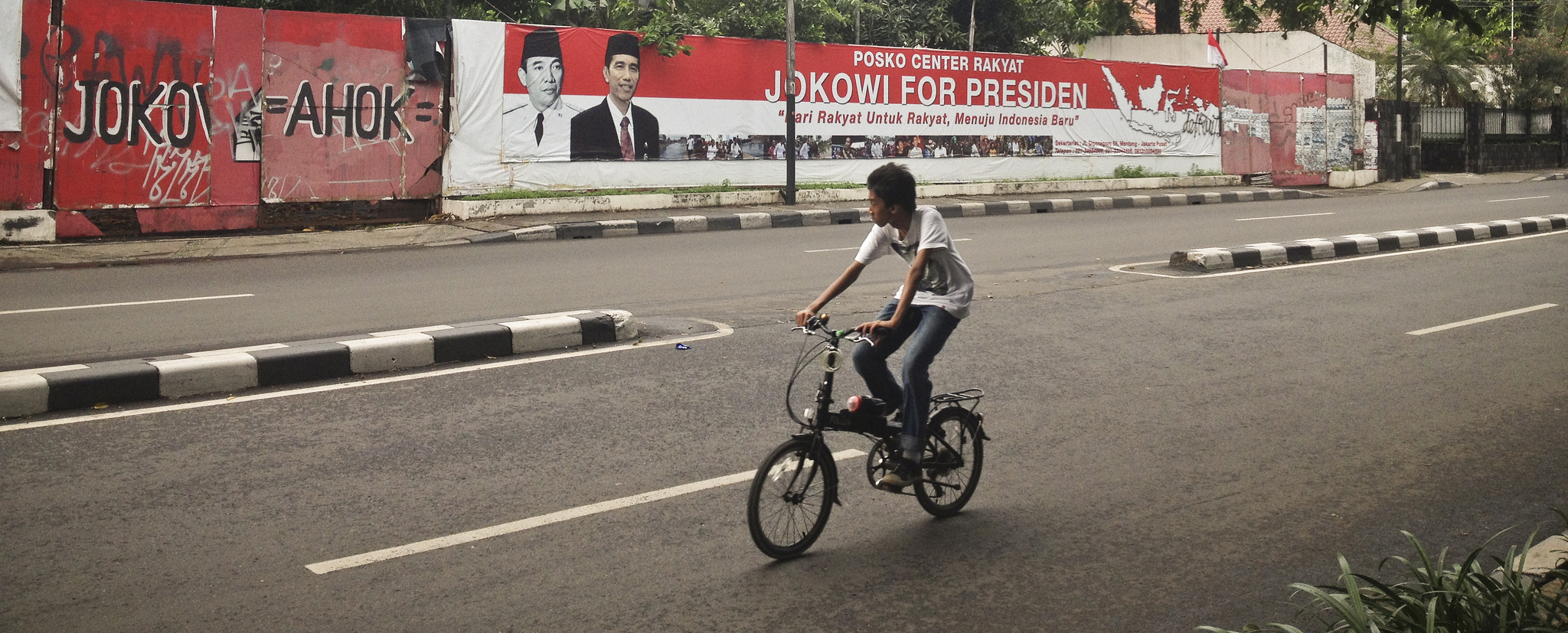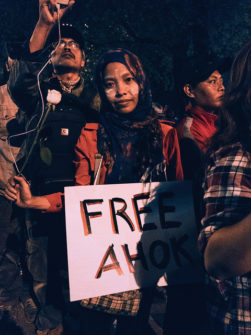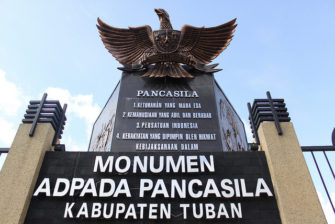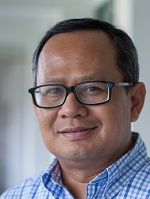
Sources of Authority
In the context of Indonesia, pluralism is actually a deeply and widely shared value. After all, it is an idea that lies at the origin of Indonesian nationalism and nation-building (Indonesia’s national motto is “Unity in Diversity,” Bhinneka Tunggal Ika). So, any meaningful approach and understanding of pluralism in contemporary modern Indonesia, in my view, has to start from the authority or framework of this ethical nationalism. This is not the narrow nationalism wherein the self is defined against the other. Rather the ethical nationalism of Indonesia is marked by inclusivity, pluralism, and hybridity. Authentic or ethical nationalism seems to be a language of pluralism that has the highest degree of normativity and acceptability in Indonesian society, across many religious or ethnic groupings. Indonesian nationalism is in fact a modern construct, but it has come to be rooted in the common experience of many groups within the nation, and over time it has accumulated affective or emotional status among most contemporary Indonesians. It has become crucial ‘social and cultural’ capital for the life of the nation. This affective or emotional aspect of nationalism is extremely important as a unifying force, especially when heated and polarizing debates or contentions occur on many aspects in the life of the nation.
The second source of authority, one that is becoming more crucial yet remains highly sensitive and underdeveloped, is theological reasoning. Indonesians in general are religious and take theology (religious doctrines and the theological foundations of their community) very seriously. For most of them, religious or theological doctrines are not just “communal consensus” that stem from historical contingencies. Rather, they have a much closer connection with a Divine reference (God’s Revelation). In recent years, thanks chiefly to the internet and digital culture, public theological discourses are mushrooming in Indonesia. Lay people debate and discuss theological topics. Even without proper educational credentials in religious matters, such as degrees from traditional Islamic boarding schools (pesantren) or Islamic theological colleges, people are quite forthcoming about their theological opinions. The situation can be chaotic, although some good theology does emerge from these discussions.
Here, I would like to offer some notes on the suitability of the term “pluralism.” In some circles of Indonesian (mainly Muslim) society, the term “pluralism” (Indonesian: pluralisme) has a rather suspicious connotation. It is perceived to be a suspect Western concept and ideology. Especially in the field of religion, the term “religious pluralism” is at times understood not as a sheer fact of life, but rather a Western ideology of sanctioning the rights of any religion or religious community to exist, with all their claims to truth and legal recognition. Thus, in the minds of some people, it is connected to the idea of religious relativism that gives every religion the right to exist and to claim theological truth. In this regard, the term “religious pluralism” is understood too narrowly as a (Western) position that relativizes theological truths in unacceptable ways (akin to the pluralist position in the theology of religions). However, the situation changes dramatically when the Indonesian word “keragaman” is used. This term has roughly the same meaning (that is, diversity or pluralism), but without the above negative connotation. This is the case because “keragaman” (or, “kebhinekaan”) belongs to the basic concept of Indonesian nationhood (Bhinneka Tunggal Ika), that is, the authority of Indonesian nationalism mentioned above. So, whenever possible, it is better to use this indigenous terminology than the Western one.
A Case in Point

In this regard, the case surrounding Mr Basuki Tjahaya Purnama (Ahok) in the last Jakarta Gubernatorial Election in late 2016 and early 2017 provides some insight and I would like to use it to highlight the need to talk about pluralism by using the framework of ethical nationalism as well as theological reasoning.
Considered unfair and politically motivated by many, the verdict against Mr Basuki (two years in prison) has led to an unprecedented civic movement in support of him. This movement quickly morphed into a larger movement involving diverse religious groupings beyond the narrow Muslim-Christian tension, and in support of the ideal of the nation, that is, unity rooted in pluralism (Indonesian: kebhinekaan). Very interestingly, it has given rise as well to ‘theological reasoning’ among scholars of different religious persuasions. An important line of these theological reflections is the need to develop a theology of love or mercy (based on the idea of God as the Merciful) that takes into account the specificity of the current Indonesian context.
In a way, the naming of God has become a public discourse in Indonesia most recently, particularly in the aftermath of the Jakarta gubernatorial election, as shown by a flurry of articles on the theme in major newspapers, such as Kompas Daily.[1] The aforementioned civic and peaceful movement is a public expression of the idea of the merciful God and Islam as God’s blessing and grace for the whole universe. Ahmad Syafi’i Maarif, one of Indonesia’s most respected Muslim scholars and leaders, categorically says:
Based on my limited knowledge of Islam, I have come to the conclusion: the most inclusive framework for Islam is “Islam as rahmatan lil’alamin” (God’s mercy for the whole universe), not only for believers, but for the whole of humanity, even for the universe. So, everything has to be put in this framework. Otherwise, it is deviant.
In particular Maarif speaks against a misguided “Arabism” as well as the theology of death (misguided martyrdom) that lies behind religious violence and fundamentalism. This style of Islam is at odds with the merciful and universal Islam that, among others, can accommodate local realities, including the ideals of Indonesian nationalism. For him, Islam in Indonesia has not been consistently practiced as a universal blessing (or mercy) for non-Muslims as well as for the universe. He contends that this is more of a problem for the Muslim community itself where internal conflicts and divisions are rife. What we see here is the growing awareness among Muslim theologians on the need to understand God as Merciful, and Islam as God’s mercy for all. So, there is an awareness of the theological nature of the problem, namely, the way we name God and the implication of this naming on our life together, beyond the confines of our own religious communities.
The current divisiveness and tensions in Indonesian society have raised serious concerns and doubts for many about the hybridity of its cultural traditions and the open-mindedness of its people. In this regard, a properly theological account of God’s mercy might provide a theological framework that can account for these pluralities and particularities more deeply, something that would appeal to religious believers when it is worked out properly, that is, when they see that this account comes from the authenticity of their religious tradition. In this regard, diverse religious scholars have begun to reflect on the need to give a proper place to the inclusive state ideology of Pancasila within their religious traditions. One can say that in the current religio-political life in Indonesia, the naming of God becomes a public discourse geared toward a theology of inclusivity that can be based on the idea of God as Merciful. There is a growing agreement that a responsible naming of God in the current Indonesian context has to meet this demand of inclusivity. Indonesian nationhood has been hailed as the framework of the common good for all religious communities. Thus, this non-theological category has actually become a category of public and civic theology of inclusivity, including the theology of God as Mercy. A constructive theology done by religious communities together, in ways that are still possible, can push this process further so as to bring fruits that the ever-changing Indonesian society needs. A contextual comparative theology, such as a Muslim-Christian theology of mercy, might have a role in this process.

Beyond the context of Indonesia, in my view, our time is a crucial moment in history where Christians and Muslims are at a critical juncture of their religious journey, as they are challenged to have a better understanding of who God is. This is a deeply theological moment. The turns of events in the world have challenged Christianity and Islam in their respective understanding of God. Here the understanding of God as Merciful presents itself in both traditions as particularly rich, which can adequately respond to the challenge of our time. Along this line of thinking, Muslim-Christian comparative theological discourse on God as Merciful can bring these communities together in their response to the challenge. As Pope Francis suggests, Christians and Muslims can name their God together, and comparative theology provides a possible avenue for this.
In Indonesia, a number of individual Muslim thinkers, such as Ahmad Syafi’i Maarif, Quraish Shihab, Alwi Shihab, Haidar Bagir[2], and Zuhairi Misrawi, have begun the works of reflecting on the nature of God in terms of love and mercy. A similar enterprise has also been done by major Muslim organizations and institutions. For example, the Nahdlatul Ulama has determined to embark on a long-term mission of restoring the notion of Islam [the Quran and the Prophet Muhammad] as a blessing for the whole universe, an understanding based on the more fundamental notion of God as ar-Rahman ar-Rahim, the Most Gracious and Merciful.
On the Catholic side, any discourse on mercy recently cannot be separated from what Pope Francis has been doing in the past few years, namely, emphasizing the message of God as Mercy that has become the hallmark of his papacy.[3] But his works on mercy are not done in isolation. Mercy has been a central work in Christian theology in general, and a few contemporary Catholic theologians have done work on the theme, among others Walter Kasper, from whom Pope Francis also drew some major inspirations.[4] What Pope Francis has achieved is giving new impetus, a sense of urgency, to this movement of naming God as Mercy beyond the confines of the Church, as he encourages interreligious reflection on God as the Merciful together with Jews and Muslims.
Conclusion
In order to work in the context of plural Indonesian society, the theological framework of naming God has to be done in the spirit of collaboration among thinkers and theologians belonging to different religious communities in line with the nationalist framework above. I believe that with these two frameworks and sources of authority (ethical nationalism and theology of God as Merciful), tolerance will be understood as a civic virtue that is also rooted in a proper understanding of who God is, the Merciful One, particularly among Muslims and Christians. Especially in the context of agonistic pluralism, this civic and theological virtue of tolerance will prove to be helpful, but again it needs to be translated into a larger and sustained civil movement.
[1] See, for example, Kompas 15 Juni 2017 on the seminar on tolerance and religious pluralism; also Kompas May 17, 2017 that publishes an article by Asep Salahudin on the notion of hubb or mahhabah. He argues that love is the core (seed) of religion, of life, of worship, citing Rumi’s famous verse: Love is an ocean without shores.
[2] Cfr. Haidar Bagir, Islam: The Faith of Love and Happiness (forthcoming, Kube Publishing Limited); See also his various popular works on Rumi and Ibn Arabi, which are also centered around the idea of love, such as Risalah Cinta dan Kebahagiaan (Bandung: Mizan, 2012); Belajar Hidup dari Rumi: Serpihan-Serpihan Puisi Penerang Jiwa (Jakarta: Noura Books, 2015); Mereguk Cinta Rumi: Serpihan-Serpihan Puisi Pelembut Jiwa (Jakarta: Noura Books, 2016); Semesta Cinta: Pengantar kepada Pemikiran Ibn ‘Arabi (Mizan, 2015).
[3] Cfr. two most recent works of Pope Francis on mercy, Misericordia Vultus (the Bull of Indiction of the Extraordinary Jubilee of Mercy) and his interview with journalist Andrea Tornielli, The Name of God is Mercy (Bluebird Books for Life, 2016).
[4] See various recent works by Walter Kasper on mercy, such as Mercy: The Essence of the Gospel and the Key to Christian Life (Paulist Press, 2013) and “Mercy – The Name of Our God,” Louvain Studies 39/3 (2015-2016): 205-217.

